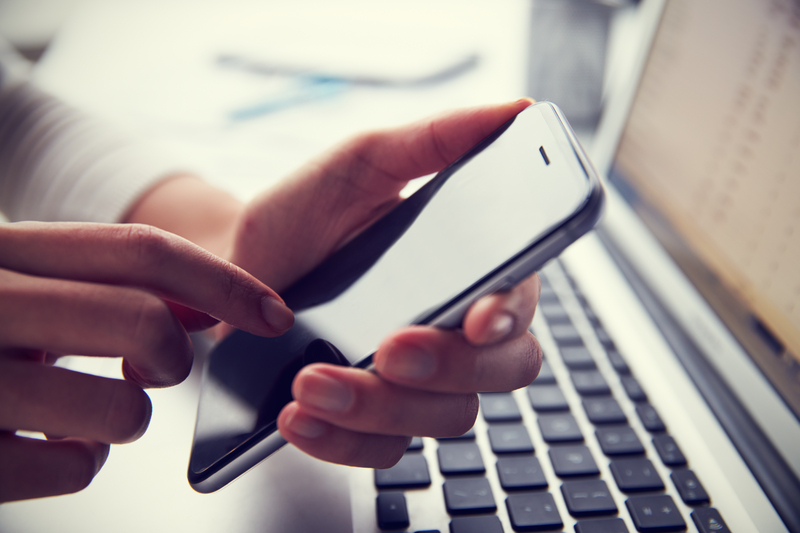
In a recent Politico Tech podcast interview, Democratic investor Bradley Tusk advocated for mobile voting, envisioning it as a way to counter low voter turnout and extreme partisanship.
Tusk, who has invested $20 million of his personal funds into developing a secure mobile voting app, pointed to successful pilot programs across seven states that boosted voter participation among deployed military and people with disabilities. Despite concerns from critics like Pamela Smith of Verified Voting about the security and privacy of internet voting, Tusk defended the idea, highlighting its transparency and robust security measures. He is hopeful for broader adoption by 2026.
Democratic investor Bradley Tusk said he envisioned a future where voting is as simple as ordering dinner or hailing a ride from your smartphone in a Tuesday interview with the Politico Tech podcast.
Tusk, who used to work for Democratic Senate Majority Leader Chuck Schumer and the former Democratic Illinois Gov. Rod Blagojevich, believes that mobile voting would help alleviate extreme partisanship and low voter turnout. During his POLITICO Tech podcast interview, Tusk defended his mobile voting vision, countering critics by citing successful pilot programs that boosted voter participation and enhanced security.
Tusk is the CEO of Tusk Venture Partners, a venture capital fund dedicated to early-stage startups in regulated sectors, and he also leads Tusk Strategies, a political consulting firm, as well as Ivory Gaming Acquisition Corp, a NASDAQ-listed company, according to his website. He invested $20 million from his personal funds to develop a secure mobile voting app, Mediate reported.
“It’s so important because it’s how we live today… And fundamentally, we have a democracy that I think many people would agree just isn’t working. It is wildly dysfunctional, it is wildly polarized. I spent the first 15 years of my career working directly in government. And my takeaway from all of it is every policy output is the result of a political input,” Tusk explained.
The host then asked Tusk to elaborate on the mobile voting pilots that were implemented across seven states.
“They were limited pilots. They were either for deployed military or people with disabilities. And the reason we chose those two groups is that they’re very politically sympathetic,” Tusk said. “We wanted to have a mix of red and blue states. Republican states like West Virginia, Utah, South Carolina really liked the idea of making it easier for deployed military to vote. And then liberal states like Oregon or Colorado or Washington really liked the idea of making it easier for people with disabilities to vote.”
Tusk said the results were promising as turnout soared, security audits by the National Cybersecurity Center passed without incident and participant satisfaction was unanimously high. Tusk also detailed the multifaceted security strategy for mobile voting, which includes biometric screening, multi-factor authentication, encryption and end-to-end verifiability—all open source for transparency.
“Whether it is security or privacy, if the election officials themselves are corrupt, they could violate either of those two things. You know what? That’s also true for mail-in voting, in-person voting, and paper ballots. But to be clear, I’m not arguing that mobile voting should replace any form of voting. I’m saying, ‘Hey, let’s make an additional option,’” he explained.
Pamela Smith of Verified Voting criticized the idea of internet voting as she pointed out its shortcomings in privacy, secrecy and security.
“Who doesn’t want to vote from home in their bunny slippers, right? The challenge though is that as we’ve been talking about that physical ballot that voters get to check at the time that they’re voting and they get to look at it and make sure that it says what they want it to say, that it’s correct,” Smith said on the Politico Tech podcast in June. “When you do internet voting, you lose that.”
Tusk is optimistic yet realistic about the timeline for widespread adoption of mobile voting. “My most optimistic timeline would be that in maybe 2025, more realistically 2026, you’re seeing municipal elections, maybe a handful of state elections. And for the rest of this decade, it’s mainly at the state and local level,” he continued.
All content created by the Daily Caller News Foundation, an independent and nonpartisan newswire service, is available without charge to any legitimate news publisher that can provide a large audience. All republished articles must include our logo, our reporter’s byline and their DCNF affiliation. For any questions about our guidelines or partnering with us, please contact licensing@dailycallernewsfoundation.org.


